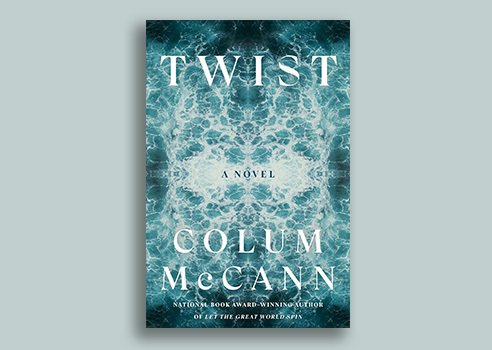Reading time: About 1 minute
I like to share interesting pieces of figurative language I encounter in my reading. I write today about personification from Colum McCann….
Colum McCann is one of the finest writers I’ve ever read. His book Let The Great World Spin sits near the top of my Lifetime-Top-10-novels list, and his more recent novel, Twist, sits not far behind.
Twist tells the story of an Irish journalist who’s been assigned to cover the work of a man who repairs the underwater cables carrying the world’s information. The journey brings him to the west coast of Africa, where he uncovers a story about the raw human labor behind the veneer of the technological world.
But McCann’s writing is much more than story-telling. It’s more like poetry, with every phrase carefully measured. He also has a superb ear for figurative language, particularly personification. Here are my favourite examples:
- My first two novels had been minor successes, and I had written a couple of plays, but in recent years I had fallen into a clean, plain silence.
- After apartheid, I had thought Cape Town might be ashamed of itself, in the choke hold of history, riven still by all it had seen and heard and done.
- The sea dragged its platter of pebbles to the shore.
- In the early morning, the fog came in fast around the mountain and struck a tuning fork in my chest.
- There was something very calm and unrushed about him. If there was a clock inside him, instructing time, it was ticking slower than the timepieces inside the rest of us.
- He was handsome in a way that seemed to puzzle him.
- I dragged my suitcase, one wheel of which was broken, so that it made a celebratory cackle.
- A moon insisted itself through the clouds.
- The heat crawled behind me up the stairs to the apartment I had rented in Pimlico. Dropped its weight down on my shoulders. Crawled across my scalp and slunk into my cranium.


